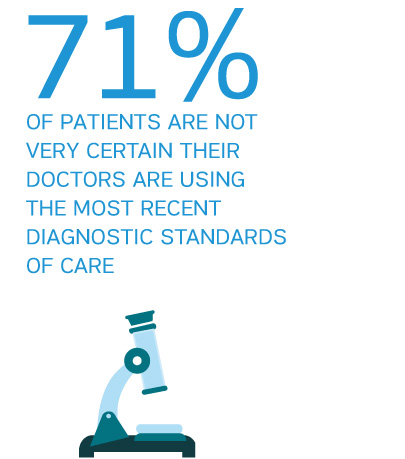David Humphreys
Global Head of Health Policy,
The Economist Intelligence Unit (EIU)
Abbott recently commissioned a study by the Economist Intelligence Unit – supported by research partners IPSOS and Acuity – to examine the laboratory’s current influence and perception, as well as to explore initiatives that could increase the impact of laboratory services in value-based healthcare.
The research clearly indicates a subordinate role for laboratories, with pathology services generally treated as a low value commodity by other key stakeholders, as evidenced by dwindling investment levels. In part, this perception is due to a rift between the key performance indicators (KPls) for laboratory success and improving patient outcomes. Despite this, labs have the opportunity to take a more prominent role in delivering value-driven healthcare, and it is now widely recognized that timely, high quality diagnostic information can support better clinical decision-making. The unstoppable trend towards data-driven diagnostics, combined with an ever-growing stream of patient data, puts the laboratory at the center of this approach.

Even more striking is the potential for the lab to act as a bridge between different stakeholders in the healthcare ecosystem, resulting in more informed and engaged patients and healthcare professionals and earlier, more preventative interventions to satisfy payers and governments. While this requires better integration of the lab with both hospital KPIs and clinical care decisions – as well as evidence that links lab activities with outcomes – the lab's role is pivotal, and the environment seems prime for this radical change. It is clear that, without shifting the paradigm in which labs operate today, the progress of value-based healthcare will be severely limited. However, if all stakeholders are able to match their willingness for change with action, then the resulting improvements in diagnosis and optimization of resource use will give healthcare the opportunity to catch up with advances in science and technology.

A 'revolution' is coming to healthcare, and mirroring the recent seismic shifts in other industries – such as retail, travel and media. Technology and data are set to take center stage, and the transformation of the telecoms sector should serve as a warning for healthcare. In just two decades, there has been a dramatic swing in communication media – from fixed to mobile to video to social – with nimble, technology-centric new entrants to the market rendering previously strong incumbents to secondary or insignificant positions. The lesson for labs is simple: disruption in healthcare will impose change, and those that do not evolve their business models by constantly adding value (especially as the complexity of care increases) will eventually experience a similar marginalization.





